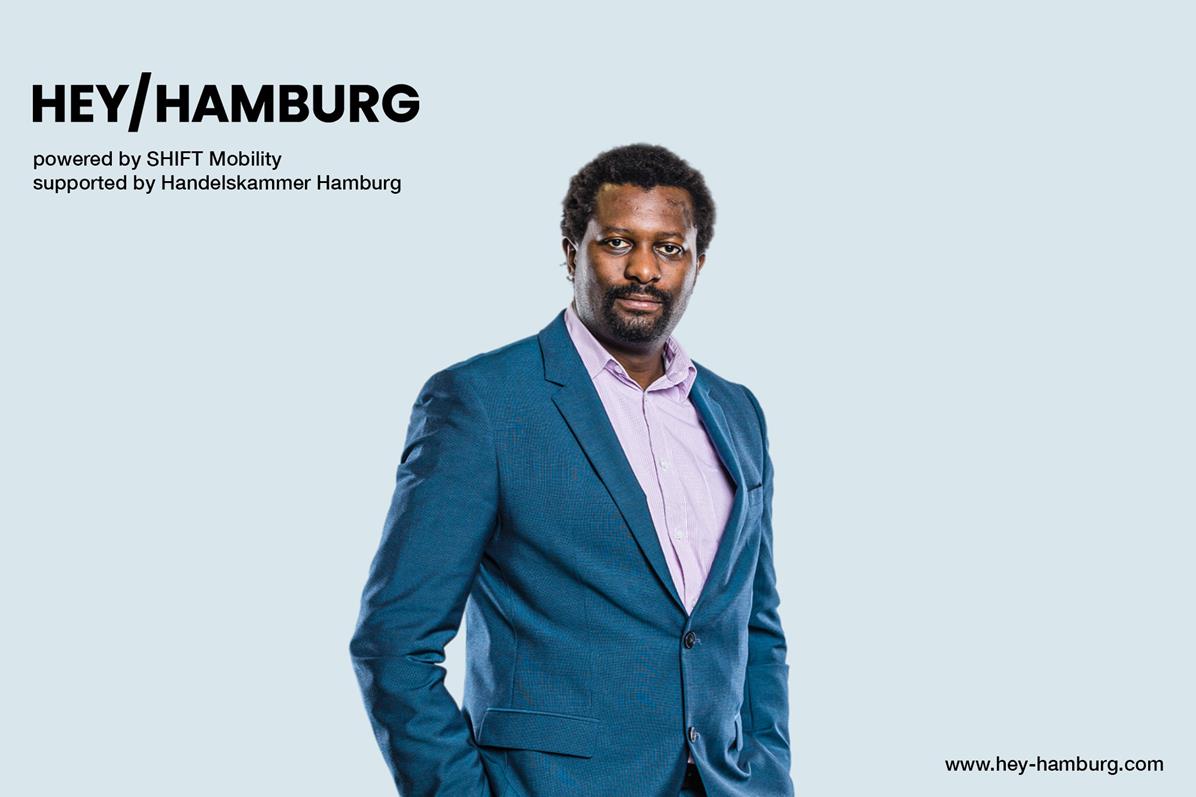The mobility sector needs to think even more disruptively

“The mobility sector needs to think even more disruptively.”
Osman Dumbuya
The founder and CEO of our partner this year, Incari GmbH from Berlin, is hoping for even more radical ideas from the mobility industry. As part of our cross-industry interview series we spoke with him and picked up exciting insights into a company that will help shape the transformation of the digital mobile world in the long term.
How do you define mobility? What does mobility mean for you or for your company?
The opportunity and the right to be mobile and move around freely should be open to all. And yet that is anything but a given. Personally, I have always found mobility to bring great happiness. For me, mobility is more than just getting from A to B – it is an experience and freedom. I mean that in a spatial sense, but figuratively too. For Incari, mobility is an important business area, and in two respects: All means of transportation, from cars to ships to air taxis and airplanes, have a digital interface between man and machine, for which we offer future-oriented solutions. But our innovations open up yet another dimension of mobility: Modern human-machine interfaces let a doctor in Munich easily operate on a patient in Berlin from a distance without having to sit on a train for several hours. And that’s just one example of how our technologies help people to be mobile without having to actually get on the road.
What do you see as the biggest challenge of the mobility revolution? How can it be overcome?
For me, the biggest challenge is to reconcile different and entirely justified interests. On the one hand, that’s traveling, driving, flying, and on the other, it’s protecting the environment and resources. That leaves us facing a decade that will see a dramatic change in the perception and implementation of mobility. Digitalization will help meet this challenge. This already begins on a small scale: Do I have to have ten apps for sharing cars, scooters, bikes, buses, and trains, or can I manage with one that offers me the optimal and integrated organization? Will there perhaps be only buses, because no one wants to drive alone anymore? Or will there be entirely new ways to be present in other spaces?
Of course, people will still want to travel to the other side of the world; but instead of just lying on the beach for two weeks and going to the same Starbucks and McDonalds as they do at home, in the future they may once again place more value on getting to know foreign people and cultures and exchanging ideas with them. This is creating a new awareness of mobility.
What are the biggest mobility challenges for your industry?
We must break away from old patterns. The best example of this – cars. Cars as they are now are optimized year after year, but stay within the familiar framework. Electrification is being celebrated as a revolution, but it is only one of many building blocks needed. The mobility industry needs to think much more disruptively! Technological development has become so rapid that more radical ideas are needed.
Which mobility ‘best cases’ impress you in particular right now, and why?
Industry is often more innovative than many realise. The Volkswagen Group, for example, has launched MOIA, a pilot project for autonomous ridepooling in Hamburg, and companies such as Volocopter, Archer and Autoflight are also making great strides with air taxis. There are many exciting approaches.
What is clear, though, is that we live on a finite planet. The car itself is coming under fundamental scrutiny in many places, and there are car dealerships now that think of mobility more broadly and are also offering cargo bikes and public transport tickets. This is happening not only in metropolises like Berlin, but also in places like Tarmstedt near Bremen. More and more people are enthusiastically using e-scooters for the last mile. I think projects like this are great, because driving technological progress forward is only one side of the coin. Ambassadors are also needed to show people that new mobility is enjoyable and that it does not worsen quality of life.
Where do you see your industry/company in terms of mobility in 5 years?
If we were to bring someone from 1980 into our present day, some things would seem like magic to them. We talk on cell phones, write and play on computers, and hang super-flat screens on the wall – unimaginable back then. And yet I expect more to happen technologically in the next five years than in the past 40. I’m talking here about mobility and digitalization, both of which I see as inseparable. Incari will help shape this transformation and bring to life the vision of a European operating system. Our goal is to establish a European alternative based on European values in the global market. As a basis for fair and sustainable digital mobility.
What do you expect from the event and the discussions?
Hamburg is a city of mobility. I am pleased to be here and am looking forward to the discussions, the many presentations, the people. And with my contribution, my hope is to be able to stimulate even more open thinking about the future of mobility.
HEY/HAMBURG
powered by SHIFT Mobility
supported by Handelskammer Hamburg





